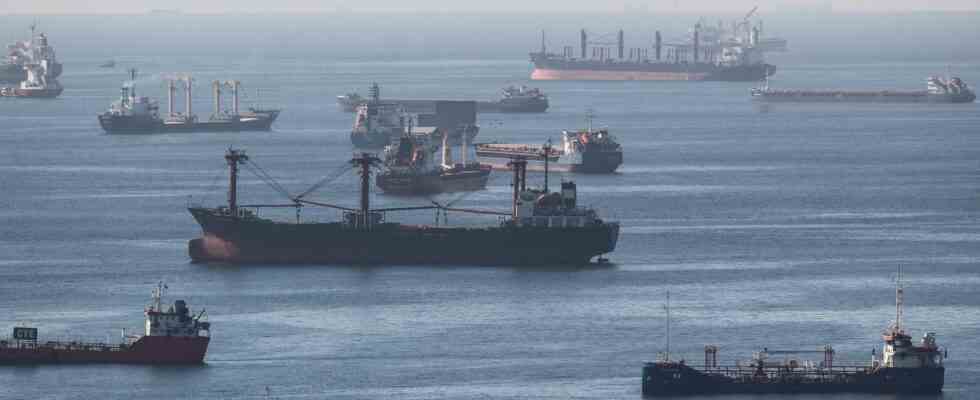Status: 11/01/2022 10:48 a.m
Russia’s leadership has unilaterally suspended the grain deal with Ukraine – what that means is unclear: is a new port blockade imminent? Are cargo ships in danger? The uncertainty is playing into Moscow’s hands.
“The Russian side suspends its participation in the implementation of agreements on the export of agricultural products from Ukrainian ports,” the Russian state news reported on Saturday evening, citing a Telegram post from the Defense Ministry. The few, somewhat awkwardly formulated sentences quickly became one internationally: “Moscow is letting the deal burst”. Further urgently needed grain deliveries from Ukraine are now impossible.
In fact, it is still unclear whether Russia intends to block the Ukrainian ports again or restrict shipping traffic, as Russia’s permanent representative to the United Nations, Vasiliy Nebensia, has indicated: Russia must not allow ships to pass through unhindered without controls, “if taking into account that the humanitarian corridor has been misused and that the Black Sea is still considered a combat zone”.
What is meant are controls beyond the agreed joint assessments in Istanbul.
Indirect threat from the Kremlin?
Kremlin spokesman Dmitry Peskov also warned that every freighter is now traveling at its own risk. Because Russia will no longer ensure security in the agreed corridor: “Everything will take on a different character, it is much riskier and more dangerous, there is no guarantee” – neither with regard to mines nor with regard to underwater drones. Ship traffic in itself is unacceptable, the Russian Ministry of Defense added in the evening, as long as the corridor is being used for attacks.
A portent? Or an attempt to bring your own interests back onto the international agenda?
For a long time, the Kremlin has complained that the second part of the deal has not been implemented or has only been implemented insufficiently: Russia is still unable to export its own grain and fertilizer unhindered because the UN does not have the means and means to ensure that the sanctions are lifted , said the deputy spokesman of the Federation Council, Konstantin Kosachev, on Russian state television. “And so the part of the agreement that affected Russian interests was not implemented for an inch or an ounce – as they say.”
The Kremlin needs success
In addition to tangible financial interests – not least with regard to rising prices and the fight for sales markets and spheres of influence – there is of course also direct pressure on Ukraine, which Moscow sees as benefiting too much from grain exports.
The hastily agreed deal, which was supposed to be of a humanitarian nature, was a bit ripped off, says Kosatchev: The delivery routes for Ukrainian grain, food and fertilizers have not been specified – “and we know that the lion’s share of these shipments eventually went to the West”.
To countries that – the Russian side also throws in this in line with the propaganda line – would supply arms to Ukraine.
The permanent representative at the United Nations, Nebensia, announced that Russia would shortly clarify its stance. It is already becoming apparent that Moscow will significantly increase the price for a resumption and an extension of the grain deal.
The Kremlin needs success – on whatever front.

